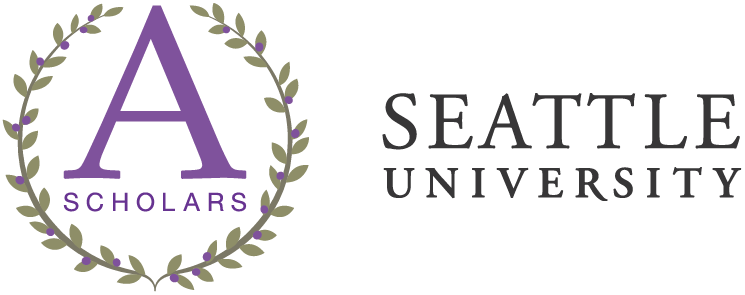Alfie Scholars Abroad: Nizama
This past summer and fall four of the Alfie Scholars studied and worked abroad. Over the next few weeks, we will post their reflections on their time as global citizens. Our first author is Nizama Djuderija, who studied at the American University of Bosnia and Herzegovina.
In my time in Bosnia and Herzegovina, I constantly got asked, “Why would you want to study abroad in the country that you’re from?” I wished myself I could have answered that question in a simple way. For many, my reality is one of millions of diasporas who have claimed the USA as their second home after war became the reason for their departure from their old one. Leaving Bosnia at the age of two and a half and visiting family every couple of years gave me a glimpse into what life was like. I felt like a complete stranger even if my name was for once not foreign to a stranger’s ear. I didn’t understand why I never felt at home in Seattle, nor in Sarajevo. I realized when I began attending Seattle U I had to search for what I was dedicating so much of my personal time to: my home country. With the assistance of my amazing parents, mentors, and advisors, within months I began my summer at the American University of Bosnia and Herzegovina in Sarajevo. With the program basing itself mainly on peace and conflict, digging into the core of a fresh wound, the war was the weight of many discussions. Because the war was the peak of my interests and what I researched the most, meeting individuals who suffered horrible tragedies and, to this day, suffer as a result demonstrated that the harm done by the aggression that was started in Bosnia by fascist, nationalistic regimes lived on.
Visiting the worst of many cities stricken by mass killings, rapes, incapacitation, and abuse, I stared death right in its eyes. I stood under the smoldering heat by a building that once held thousands of imprisoned Bosnians in Trnopolje and scanned the countless graves in Srebrenica while holding back tears, knowing the voices under these graves bear witness to more crimes than the International Criminal Tribunal for the former Yugoslavia could ever hold accountable.
Interning at the International Commission on Missing Persons (ICMP) brought real-time experience of just the complexity, politics, and despair that comes with finding missing bodies of hundreds and thousands of missing victims. Having family members of my own brutally killed during the war and knowing that the ICMP was there to lay their bodies to rest provided me a sense of pride that if NGO’s continue with the missions set out from the beginning, we can form some place of peace for mourning families. As I drove through Sarajevo daily, while sharing a story with a taxi driver, I observed just how beautiful my country is.
Every detail had its own piece of history, dating its ex-Yugoslavian spunk to the regal Ottoman Empire architecture. Shelled buildings proved the resistance against those who wanted to split the nation apart, but crossing entity lines froze that thought with the harsh reality of my identity not being welcome. With the knowledge of the corrupted government, weakened economy, and depressing reality for youth with college degrees but next to zero chances for employment put my focus in a new state alongside the war. We as diaspora have been lucky enough to escape the daily struggles many are still living through after the war, and we have a moral obligation to use our resources, talents, and altruistic capabilities to help those stuck in a corrupted time-freeze from a government that could care less for them.
Studying abroad provided me with the harsh reality of my country’s state today. Although I am always looked at as “different” since I live in the US, I see a sliver of hope if we ourselves act to help reel back the bridges burned by war and come together, across ethnic lines, to create a prosperous Bosnia for this upcoming generation to prove the power of peace. That is why I studied abroad in the country that I am from.



